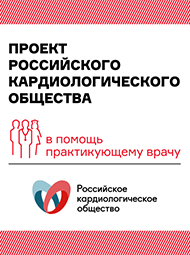APPRAISE-2: Apixaban does not affect outcomes, may increase bleeding after ACS
In patients with ACS, apixaban did not improve outcomes and was associated with increased bleeding, regardless of background concomitant antiplatelet therapy, according to new findings from the APPRAISE-2 trial.
The trial was stopped early because patients assigned apixaban (Eliquis, Bristol-Myers Squibb/Pfizer) had an increased risk for bleeding without any benefit related to ischemic events compared with patients assigned placebo, according to the study background.
In a post-hoc analysis, researchers analyzed whether the effect of apixaban was influenced by patients’ background antiplatelet therapies of aspirin alone or aspirin plus clopidogrel. At baseline, among the 7,364 patients, 16.3% were taking aspirin only and 79% were taking aspirin plus clopidogrel; during follow-up, 19.2% switched antiplatelet therapy, Connie N. Hess, MD, MHS, from Duke Clinical Research Institute, and colleagues reported.
No differential effect
When Hess and colleagues evaluated the composite endpoint of CV death, MI and ischemic stroke, they found no differential effect of apixaban vs. placebo regardless of whether patients were taking aspirin alone (apixaban, 12.21 per 100 patient-years; placebo, 13.21 per 100 patient-years; adjusted HR = 0.91; 95% CI, 0.62-1.32) or aspirin plus clopidogrel (apixaban, 13.22 per 100 patient-years; placebo, 14.24 per 100 patient-years; adjusted HR = 0.95; 95% CI, 0.78-1.14; P for interaction = .84).
Compared with placebo, apixaban was associated with an increase in TIMI major bleeding regardless of whether patients were taking aspirin alone (apixaban, 1.48 per 100 patient-years; placebo, 0.25 per 100 patient-years; adjusted HR = 6.62; 95% CI, 0.75-51.73) or aspirin and clopidogrel (apixaban, 2.58; placebo, 1.02; adjusted HR = 2.44; 95% CI, 1.34-4.45; P for interaction = .41).
Hess and colleagues also found that the results did not change regardless of whether patients underwent PCI.
“These data suggest that use of novel oral anticoagulants with a strategy of concomitant aspirin alone compared with aspirin plus clopidogrel might not improve the safety of these agents,” the researchers wrote. “Further investigation with prospective studies evaluating other alterations in antithrombotic regimens, such as monotherapy with P2Y12 receptor inhibitors, should be pursued.”
No role for full-dose anticoagulation
According to Christian T. Ruff, MD, MPH, based on the results of the present study and the WOEST study, “It is reasonable to conclude that if a patient with ACS requires full-dose anticoagulation for another indication, a less potent antiplatelet strategy may offer the best net clinical benefit, but there seems to be no role for full-dose long-term anticoagulation specifically for ACS.”
Christian T. Ruff
In an accompanying editorial, Ruff, from the cardiovascular division of the department of medicine at Brigham and Women’s Hospital and Harvard Medical School, noted that although the ATLAS ACS 2–TIMI 51 study found that lower doses of rivaroxaban (Xarelto, Janssen Pharmaceuticals) were associated with lower rates of CV death, MI and stroke in patients with ACS, compared with placebo, “the dose … is most likely the critical factor … suggesting a possible threshold effect when using anticoagulation in combination therapy for ACS. Some suppression of the coagulation pathway is helpful, but too much exposes patients to unacceptable rates of bleeding and also diminished efficacy.” – by Erik Swain
Disclosures: The study was funded by Bristol-Myers Squibb and Pfizer. Hess reports receiving a research grant from Gilead Sciences. Please see the full study for a list of all other researchers’ relevant financial disclosures. Ruff reports receiving consultant fees from Bayer, Boehringer Ingelheim, Daiichi Sankyo and Portola, and grant support through his institution from AstraZeneca, Daiichi Sankyo, Eisai and Intarcia.
Source: www.healio.com


.jpg)



